This Chrome extension saves downloads directly to Google Drive — I really wish I'd found it sooner
How to save Chrome downloads directly to Google Drive

Learning how to save files from Chrome directly to Google Drive is super useful, and will save you a lot of time if you regularly use both Chrome and Drive.
If you regularly save images or files from the web, which you then upload to Google Drive for use across multiple devices, there's an extension that helps you completely cut out the middle steps — that is to say, it removes the need to save files to your physical device storage and then upload them to Google Drive. You simply save the image or screenshot directly to a folder on your Google Drive.
This is particularly useful if you use Google Drive as your main storage platform and/or if you want to save physical storage space on the computer you're using. Personally, my job here at Tom's Guide requires me to regularly save down images to produce tutorials, and I often use Drive to transfer those images onto different devices. This extension saves me a lot of time — I just wish I'd found it earlier.
Here's how to save files from Chrome directly to Google Drive.
How to save files from Chrome directly to Google Drive
This guide will show you how to save files from Chrome directly to Google Drive. We'll also show you how to change the Drive location that files save to.
1. Add the Save to Google Drive Chrome extension
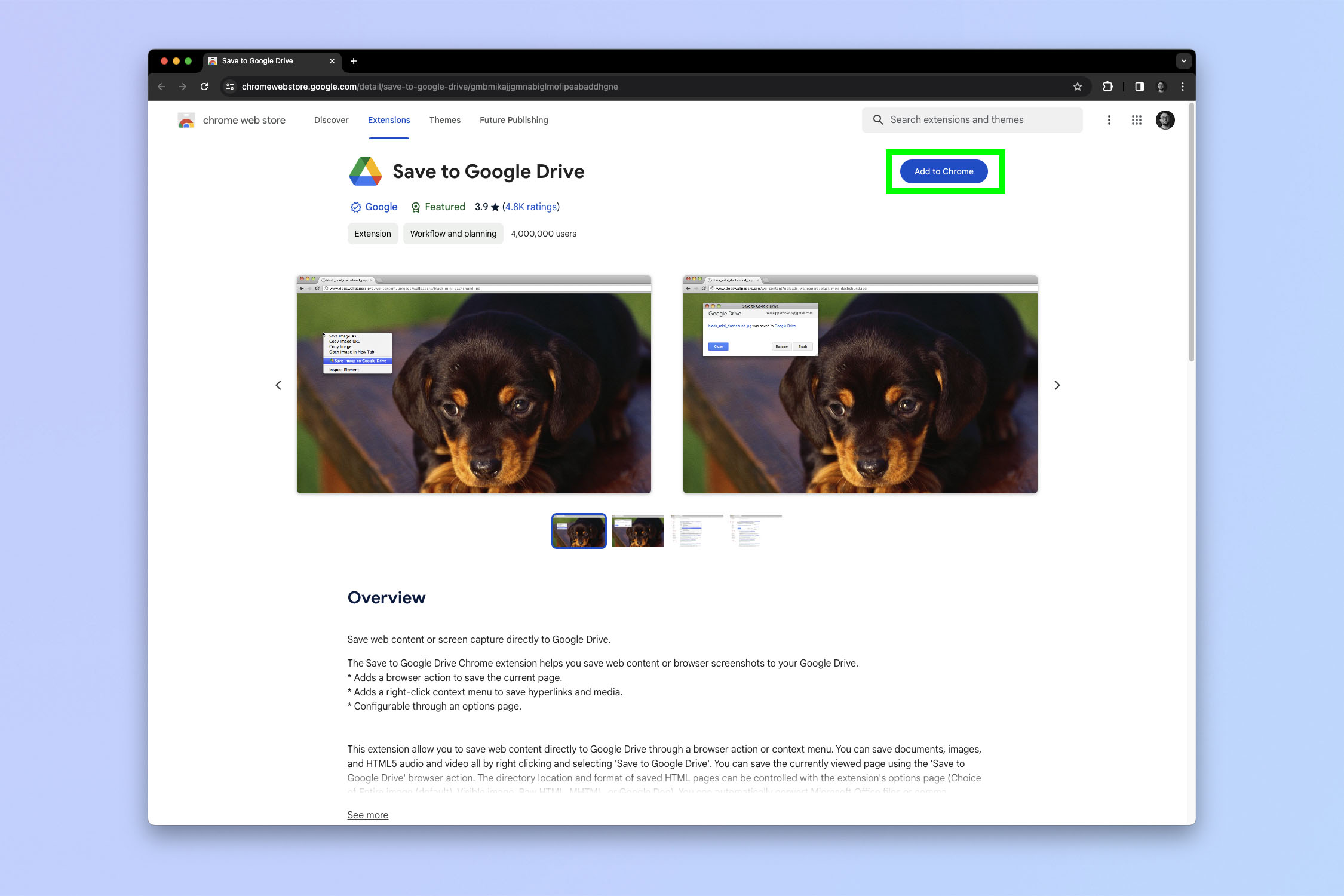
First up, head to the Save to Google Drive Chrome extension page in the Chrome Web Store. Click Add to Chrome.
2. Click Add Extension
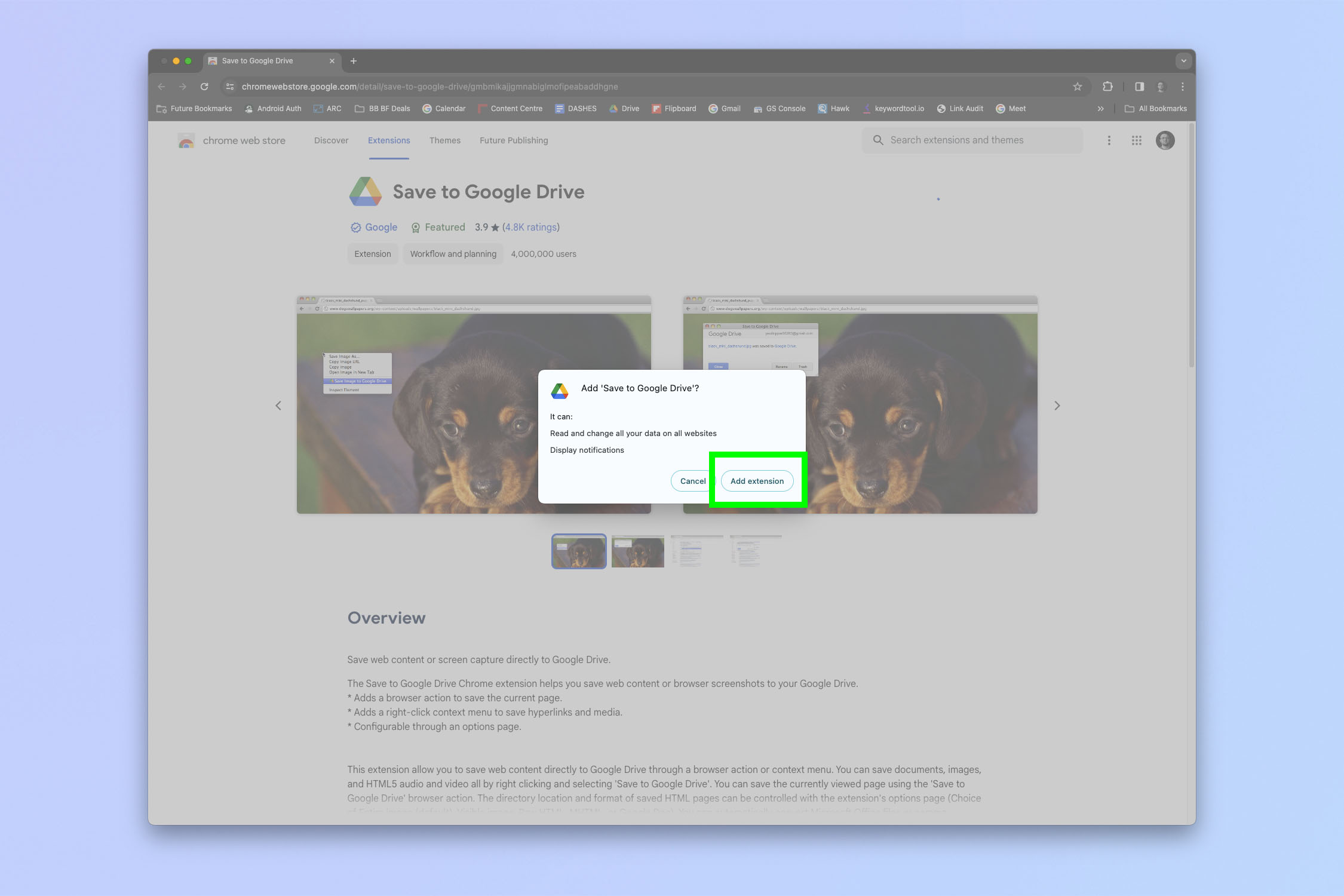
When prompted, click Add Extension.
3. Right click a file and select Save to Google Drive
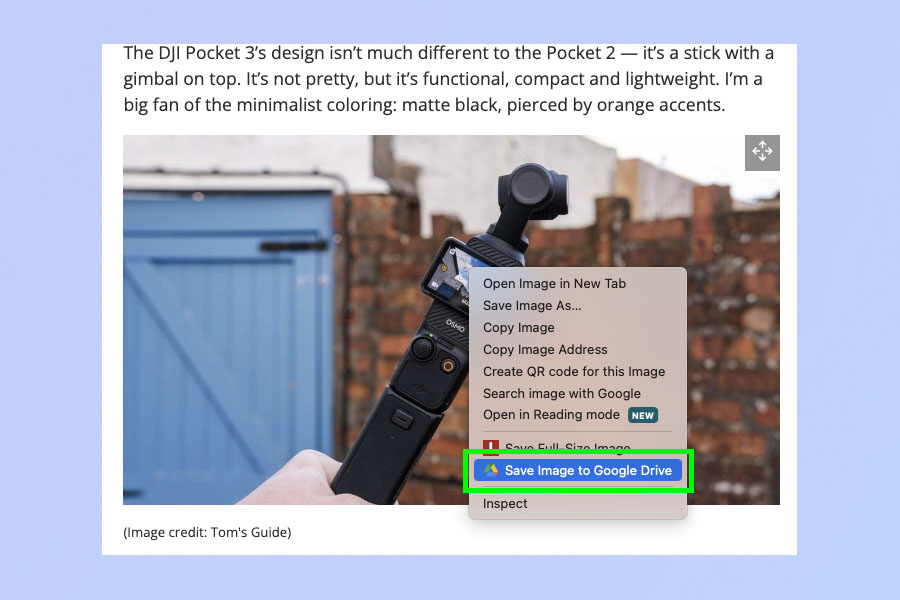
When you find a file or link you want to save, right click it and select Save to Google Drive.
4. Click the link or folder in the pop up box to go to the file/folder
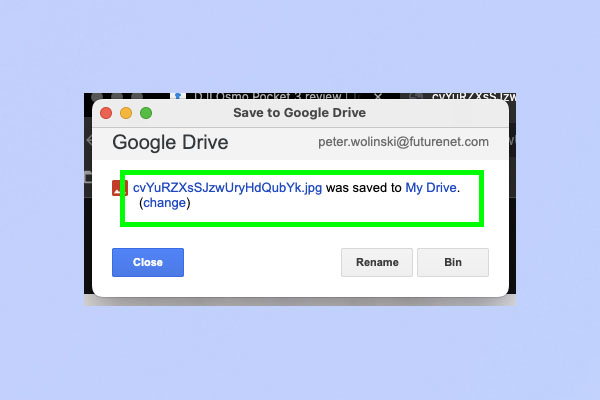
A pop up box will appear to show progress and confirm when the file has been saved. Click the file link to go straight to the file, or click the folder directory to go to the folder the file is located in. By default, files are saved to My Drive. Click change to select a new folder.
5. (Change save location) Click Extensions > three dots > Options
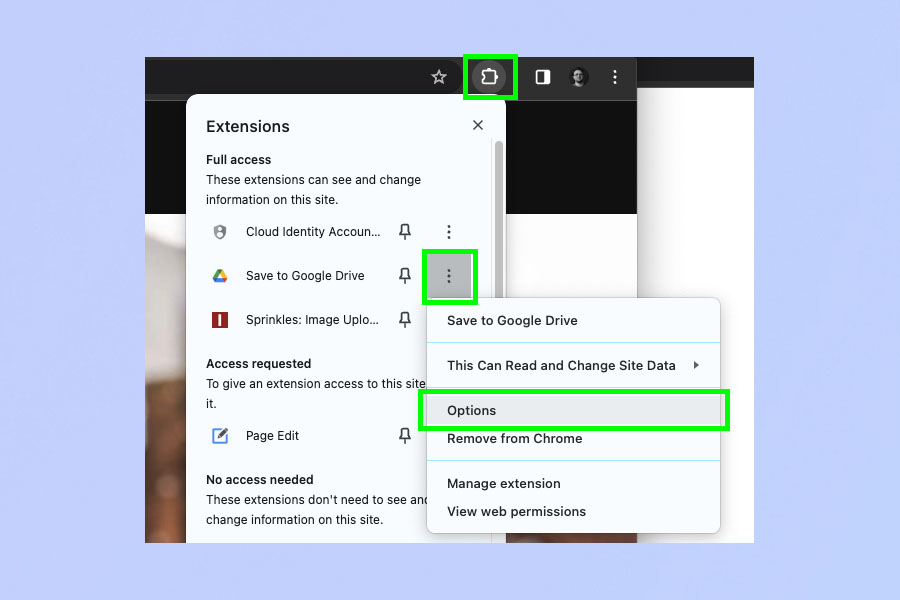
Another way to change the save location is to click the extensions icon, top right, then click the three dots next to Save to Google Drive. Then select Options. This is useful if you want to change the save location before you save anything.
6. Select a new save destination
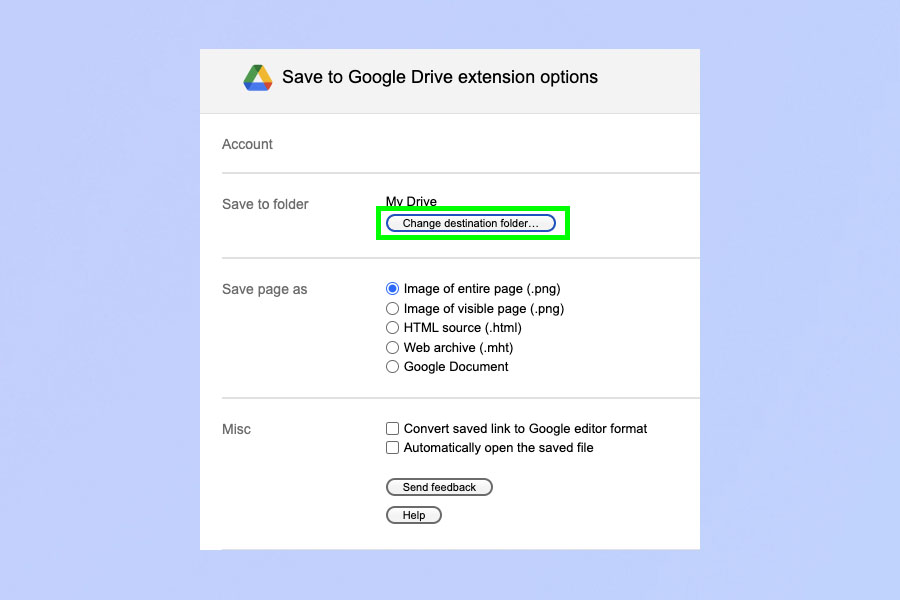
Now click Change destination folder and select a new folder to save to.
That's all there is to it. For more Chrome tutorials, check out our guides on how to hack the Chrome dinosaur game, how to set Chrome flags, how to enable hardware acceleration in Chrome and how to clear the cache in Chrome.
Get instant access to breaking news, the hottest reviews, great deals and helpful tips.

Peter is a Senior Editor at Tom's Guide, heading up the site's Reviews team and Cameras section. As a writer, he covers topics including tech, photography, gaming, hardware, motoring and food & drink. Outside of work, he's an avid photographer, specialising in architectural and portrait photography. When he's not snapping away on his beloved Fujifilm camera, he can usually be found telling everyone about his greyhounds, riding his motorcycle, squeezing as many FPS as possible out of PC games, and perfecting his espresso shots.
 Club Benefits
Club Benefits





